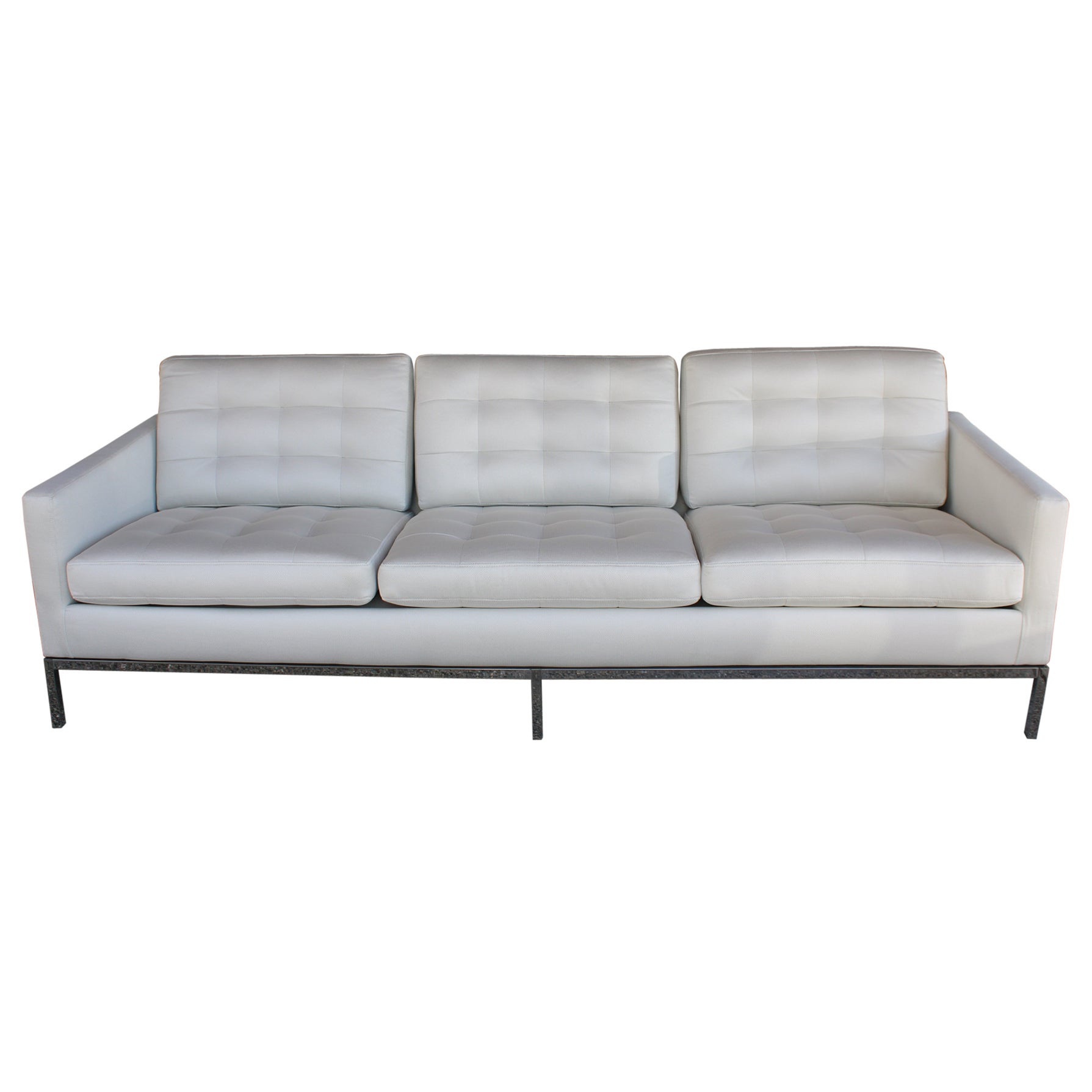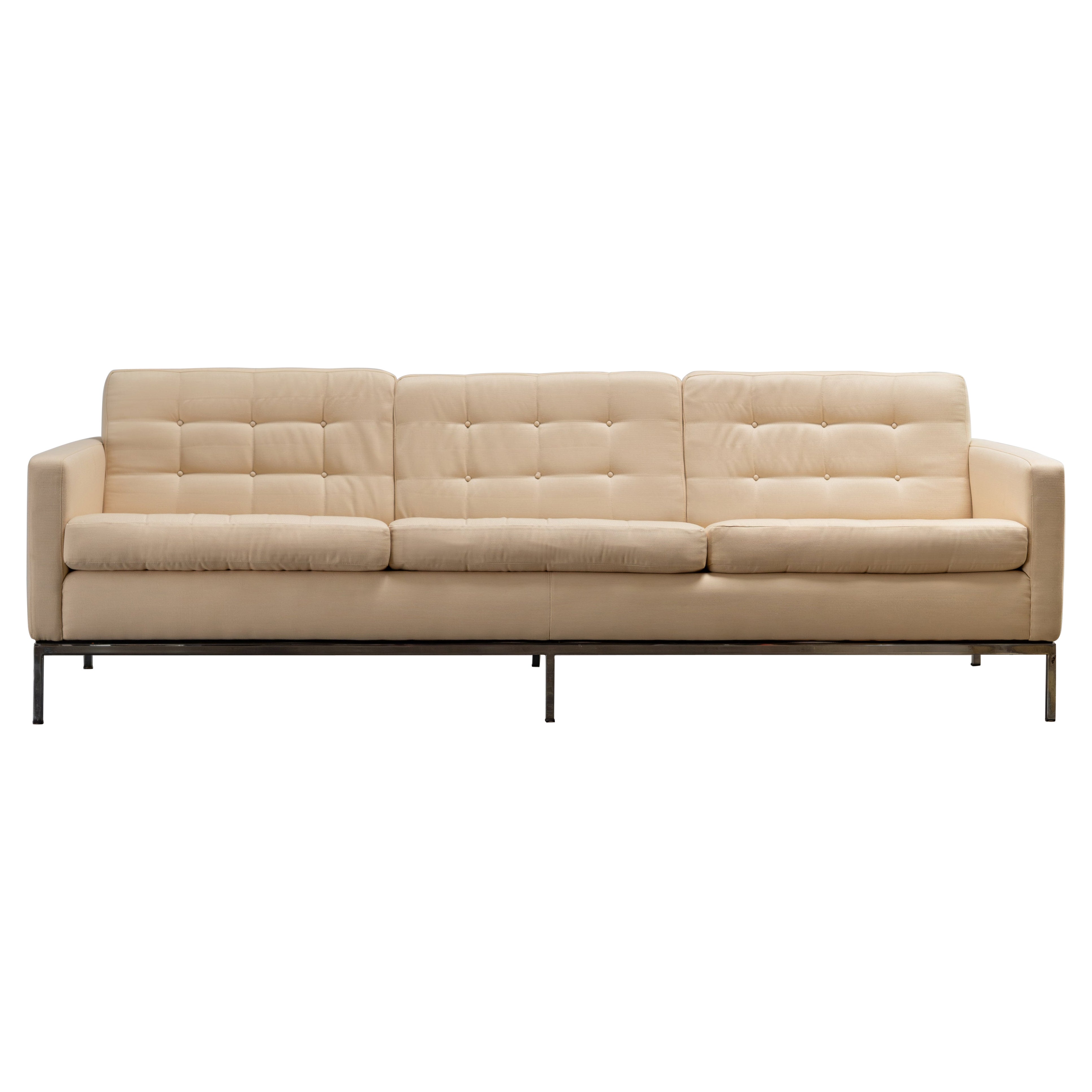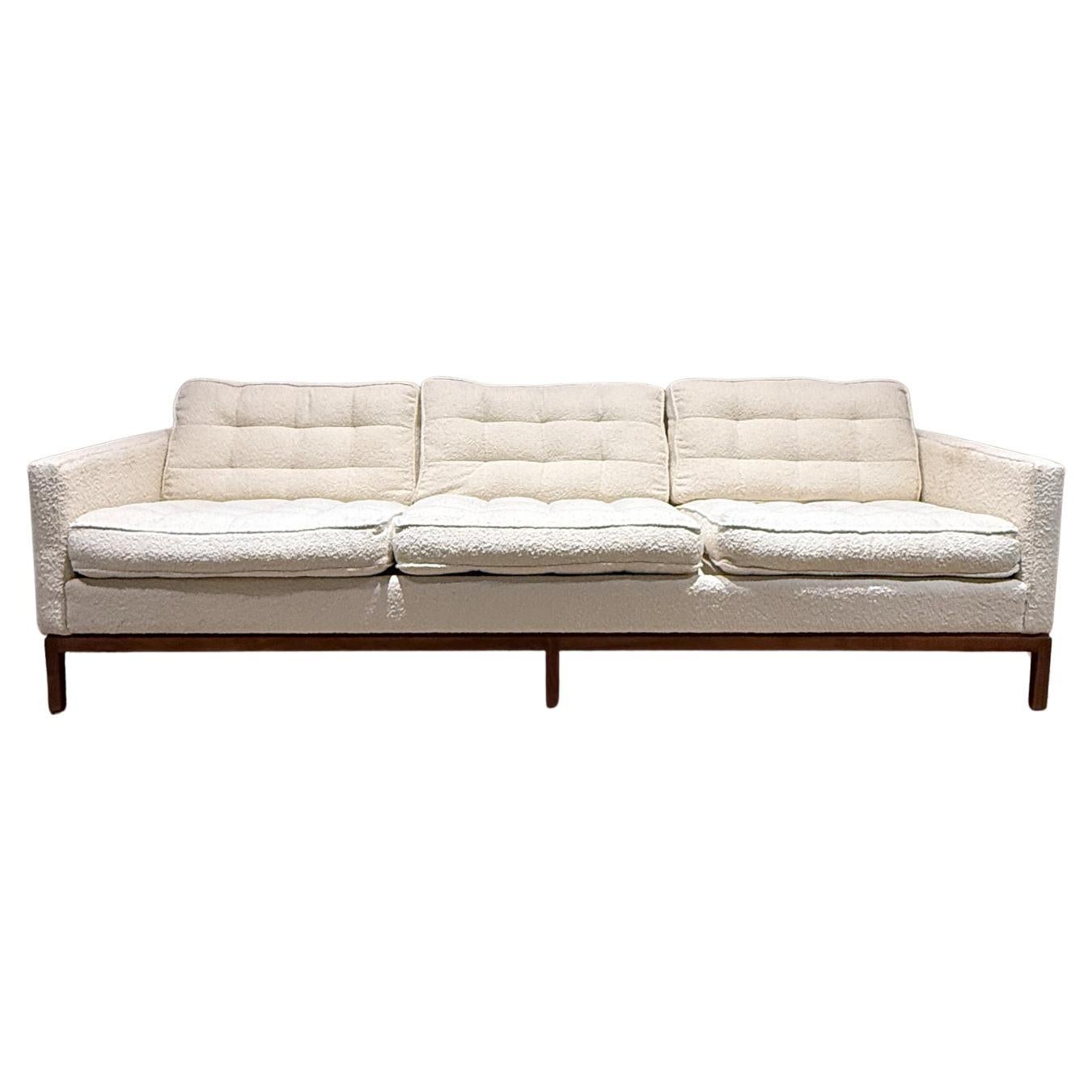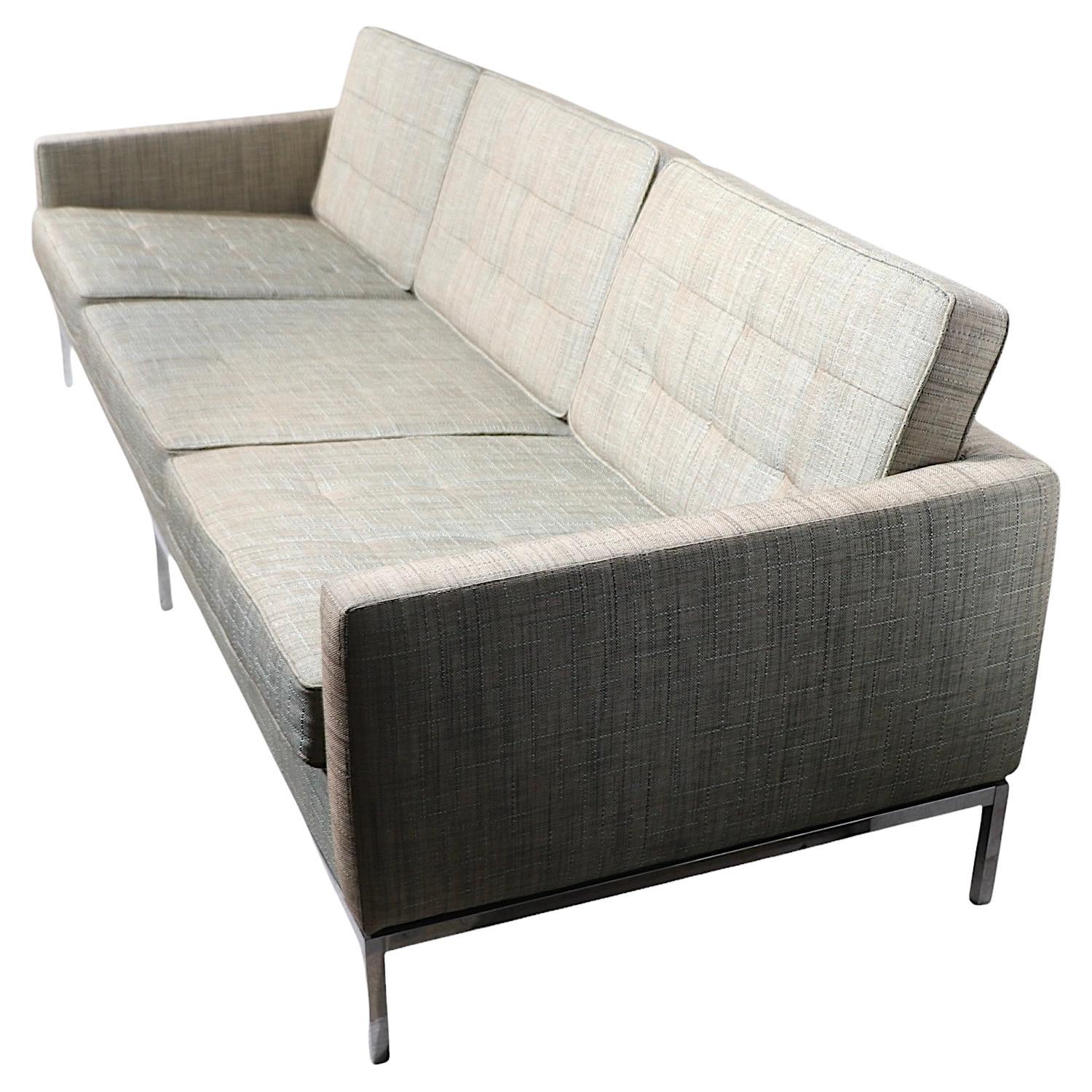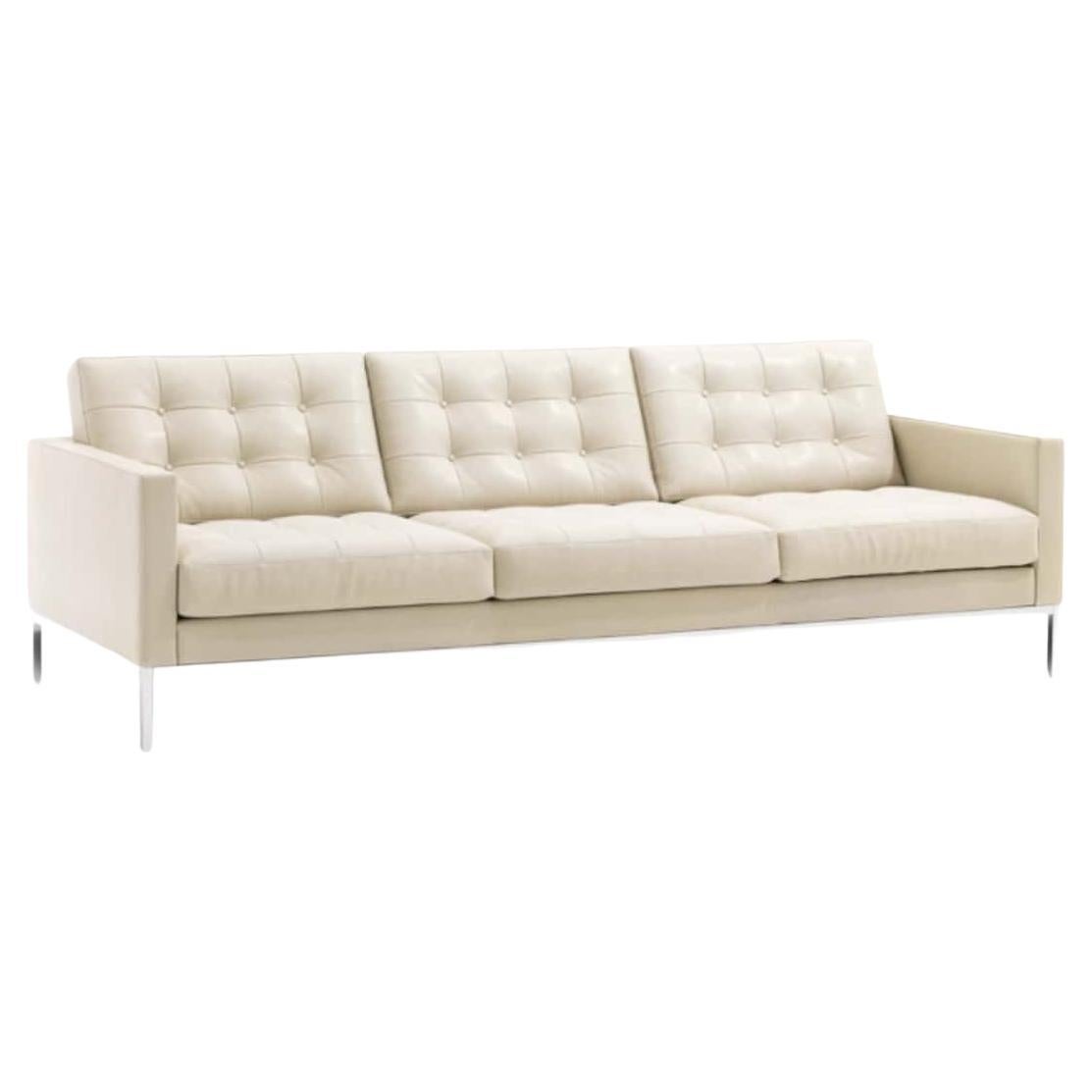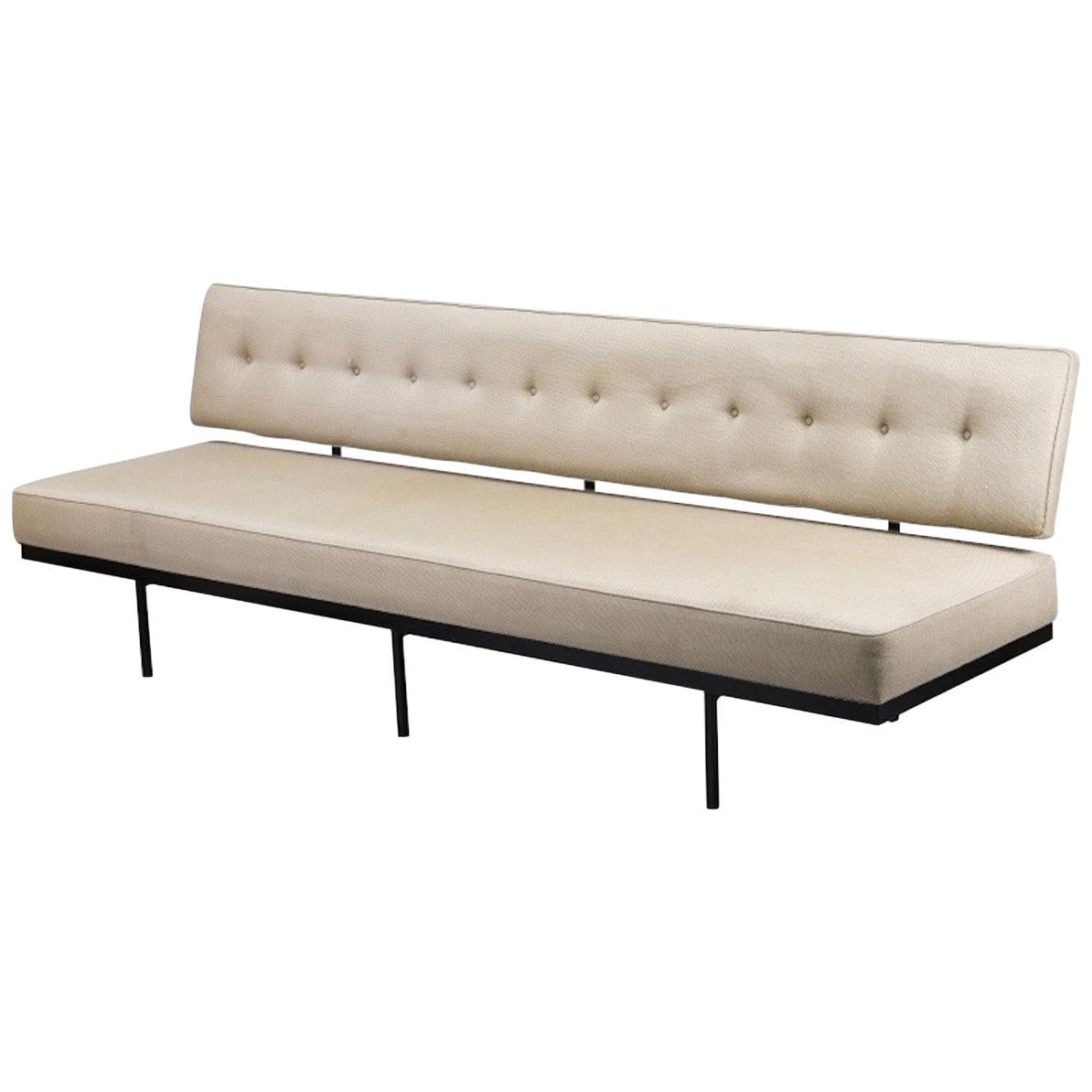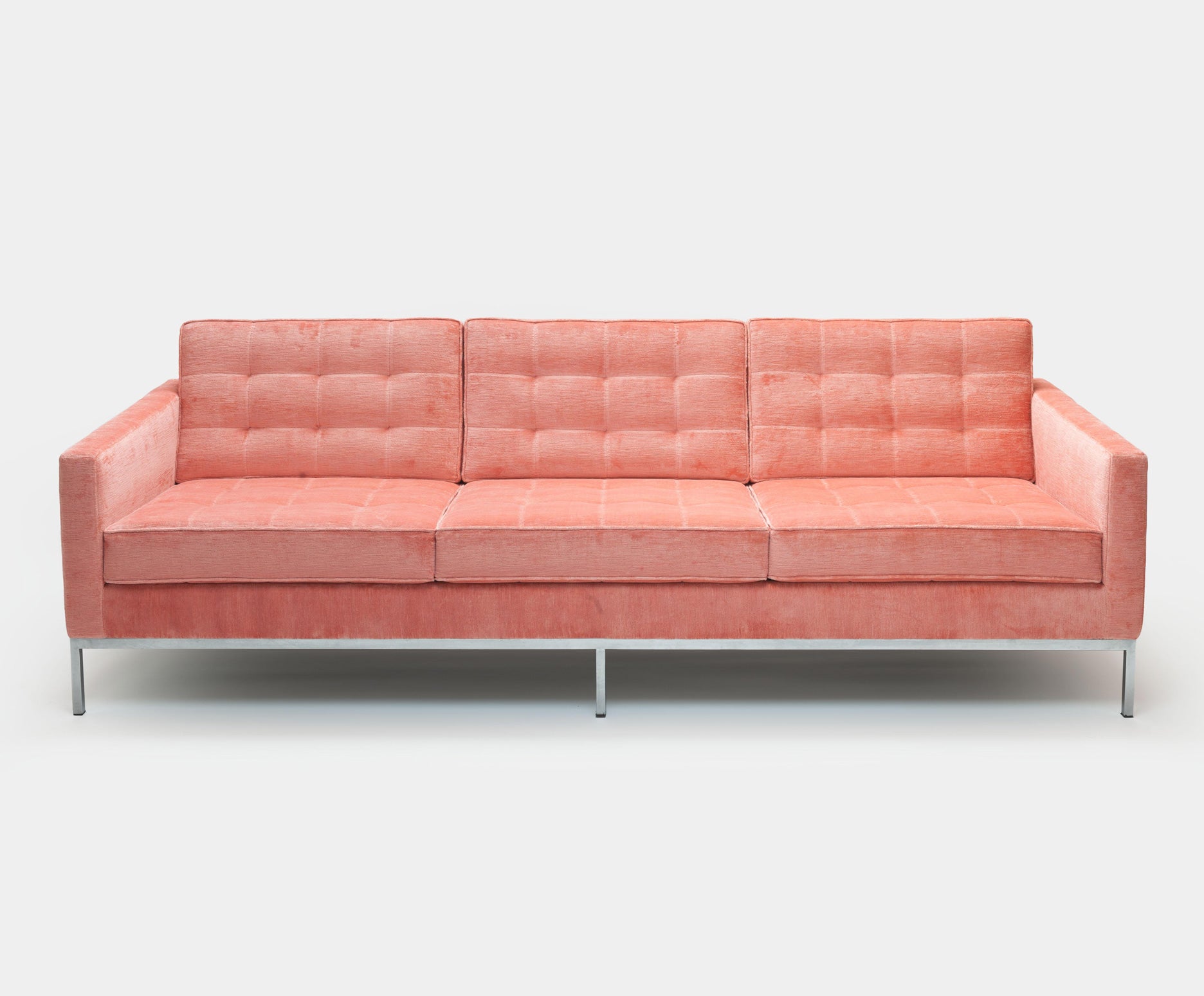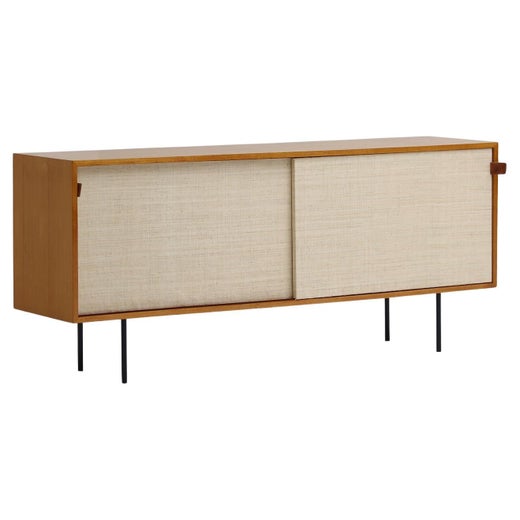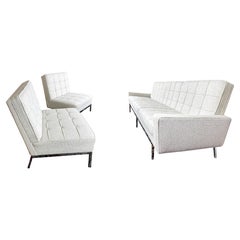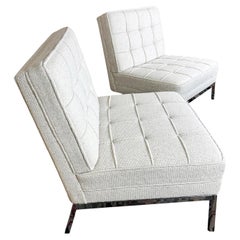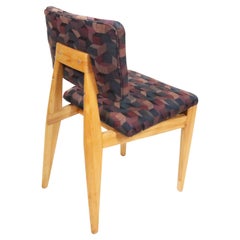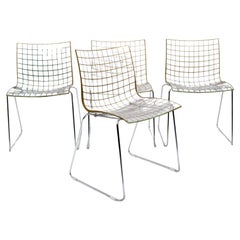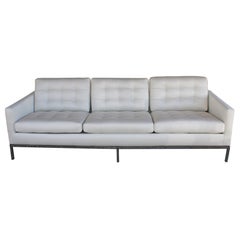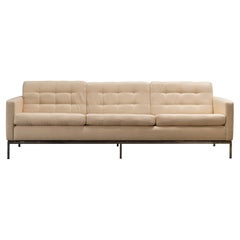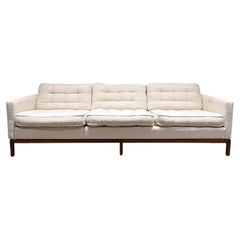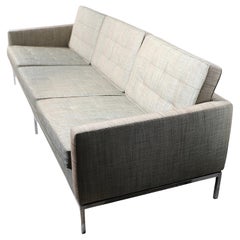Florence Knoll for Knoll Sofa, Model 67a, 1960s
About the Item
- Creator:Florence Knoll (Designer),Knoll (Manufacturer)
- Design:Florence Knoll SofaLounge Series
- Dimensions:Height: 32 in (81.28 cm)Width: 91 in (231.14 cm)Depth: 31.5 in (80.01 cm)Seat Height: 17 in (43.18 cm)
- Style:Mid-Century Modern (Of the Period)
- Materials and Techniques:
- Place of Origin:
- Period:
- Date of Manufacture:1960s
- Condition:Reupholstered. New Knoll fabric in 2005.
- Seller Location:Littleton, CO
- Reference Number:1stDibs: LU5401241201392
Florence Knoll Sofa
Although Michigan native Florence Knoll (1917–2019) modestly described her furniture as “meat and potatoes” designs that were largely “fill-in pieces” for the Knoll Associates catalog, works like the Florence Knoll sofa demonstrate her artful expression of modern proportions. Introduced in 1954, the sofa was made during the American designer and entrepreneur’s direction of the Knoll Planning Unit, the company’s pioneering “design consultant service” that would define the look of the postwar workplace. The versatile Florence Knoll sofa, with its angular silhouette and tasteful mix of textures — from the colorful upholstery options to its exposed metal frame and legs — could as easily fit into the glass lobby of a skyscraper as the living room of a home.
Before she met her husband, Hans Knoll, with whom she built Knoll Associates into an international tastemaker of mid-century style, Florence studied under architect Ludwig Mies van der Rohe at the Illinois Institute of Technology and worked for architects Walter Gropius and Marcel Breuer. That mentorship — from the major figures of the Bauhaus — had a significant impact on her approach to “total design,” in which each part of an interior was not just an object, it was a component of a comprehensive whole. Mies’s influence in particular is evident in the simplicity of the Florence Knoll sofa, its modern materials and restrained design channeling his “less is more” ethos. Its polished chrome steel legs and cushions with their clean lines further provided an architectural contrast to more sculptural pieces being created for Knoll Associates by designers such as Harry Bertoia, Eero Saarinen and Isamu Noguchi.
The numerous pieces Florence Knoll designed for the Knoll Associates furniture line were envisioned as design solutions for the changing needs in residential and office spaces. The Florence Knoll Lounge chair, also released in 1954, was a scaled-down companion to the sofa, so together they could offer flexible seating for a meeting space or entertaining area in the home.
Knoll may have designed her sofa because she needed a minimal piece as an element in the diverse interiors being filled with her company’s furnishings, but it’s now among the most celebrated of the company’s designs. Knoll, Inc. continues to produce the Florence Knoll sofa over half a century after it was introduced, and vintage models are still prized for their sturdy construction and timeless qualities.
Florence Knoll
Architect, furniture designer, interior designer, entrepreneur — Florence Knoll had a subtle but profound influence on the course of mid-century American modernism. Dedicated to functionality and organization, and never flamboyant, Knoll shaped the ethos of the postwar business world with her skillfully realized office plans and polished, efficient designs for sofas, credenzas, desks and other furnishings.
Knoll had perhaps the most thorough design education of any of her peers. Florence Schust was orphaned at age 12, and her guardian sent her to Kingswood, a girl’s boarding school that is part of the Cranbrook Educational Community in suburban Detroit. Her interest in design brought her to the attention of Eliel Saarinen, the Finnish architect and head of the Cranbrook Academy of Art.
Saarinen and his wife took the talented child under their wing, and she became close to their son, the future architect Eero Saarinen. While a student at the academy, Florence befriended artist-designer Harry Bertoia and Charles and Ray Eames. Later, she studied under three of the Bauhaus masters who emigrated to the United States. She worked as an apprentice in the Boston architectural offices of Walter Gropius and Marcel Breuer; Ludwig Mies van der Rohe taught her at the Illinois Institute of Technology.
In 1941, she met Hans Knoll, whose eponymous furniture company was just getting off the ground. They married in 1946, and her design sense and his business skills soon made Knoll Inc. a leading firm in its field. Florence signed up the younger Saarinen as a designer, and would develop pieces by Bertoia, Mies and the artist Isamu Noguchi.
Florence Knoll's main work came as head of the Knoll Planning Group, designing custom office interiors for clients such as IBM and CBS. The furniture she created for these spaces reflects her Bauhaus training: the pieces are pure functional design, exactingly built; their only ornament from the materials, such as wood and marble. Her innovations — the oval conference table, for example, conceived as a way to ensure clear sightlines among all seated at a meeting — were always in the service of practicality.
Since her retirement in 1965, Knoll received the National Medal of Arts, among other awards; in 2004 the Philadelphia Museum of Art mounted the exhibition “Florence Knoll: Defining Modern” — well deserved accolades for a strong, successful design and business pioneer. As demonstrated on these pages, the simplicity of Knoll’s furniture is her work’s great virtue: they fit into any interior design scheme.
Find vintage Florence Knoll sofas, benches, armchairs and other furniture on 1stDibs.
- ShippingRetrieving quote...Shipping from: Littleton, CO
- Return Policy
More From This Seller
View AllVintage 1960s American Mid-Century Modern Living Room Sets
Chrome
Vintage 1960s American Mid-Century Modern Lounge Chairs
Steel, Chrome
Vintage 1950s American Mid-Century Modern Dining Room Chairs
Upholstery, Birch
Early 2000s American Post-Modern Dining Room Chairs
Steel, Chrome
Vintage 1950s Danish Scandinavian Modern Coffee and Cocktail Tables
Teak
Vintage 1950s Danish Scandinavian Modern Lounge Chairs
Beech, Teak
You May Also Like
Vintage 1970s Italian Mid-Century Modern Sofas
Steel
Mid-20th Century American Mid-Century Modern Sofas
Steel, Chrome
Mid-20th Century American Mid-Century Modern Sofas
Fabric, Wood
Mid-20th Century American Mid-Century Modern Sofas
Chrome
2010s American Mid-Century Modern Sofas
Metal, Stainless Steel, Chrome
Vintage 1950s American Mid-Century Modern Sofas
Fabric
